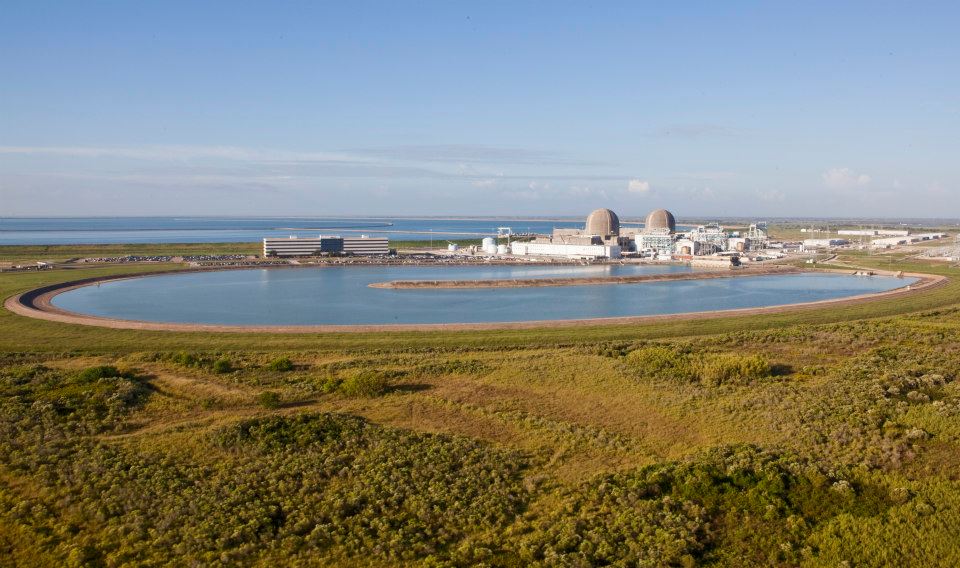Constellation completes ownership stake in Texas plant

Constellation Energy announced last week that it has completed its acquisition of NRG Energy’s 44 percent ownership stake in the South Texas Project nuclear power plant.


Constellation Energy announced last week that it has completed its acquisition of NRG Energy’s 44 percent ownership stake in the South Texas Project nuclear power plant.
The White House yesterday released its $5.8 trillion fiscal year 2023 budget proposal, just two weeks after President Biden signed into law H.R. 2471, the FY 2022 omnibus bill that funds the federal government through September 30.

Crane
Exelon, owner and operator of the nation’s largest nuclear reactor fleet, has made clear its position on the massive infrastructure and social spending bills that federal lawmakers, at this writing, continue to haggle over.
“As world leaders convene in Glasgow for COP26 to address the climate crisis, the need for America to take action has never been more urgent,” said Chris Crane, Exelon’s president and chief executive officer, on Monday. “The bipartisan infrastructure agreement and the policy framework for Build Back Better legislation will make us more competitive globally, spur innovation and support good-paying jobs, protect current and future generations from the worst impacts of climate change, and cement America’s leadership on one of the most pressing challenges—and opportunities—of our time. The time to act is now, and we encourage lawmakers to pass these critical policies into law.”

On the sidelines of the COP26 Conference in Glasgow yesterday, John Kerry, the Biden’s administration’s special presidential envoy for climate, joined Romanian president Klaus Iohannis to announce plans to build a first-of-a-kind small modular reactor plant in Romania. The SMR technology is to be provided by NuScale Power, based in Portland, Ore.

Dietmar Detering, a German entrepreneur and cochair of the advocacy organization Nuclear New York, believes nuclear energy could be the key to solving the climate crisis. He's part of a wave of environmentalists campaigning for more nuclear energy, an idea explored by CNET in the July 1 article, Is nuclear power the missing piece of our climate change puzzle?
Democratic leaders in the House last week introduced the Climate Leadership and Environmental Action for our Nation’s Future Act (the CLEAN Future Act, or H.R. 1512), a nearly 1,000-page piece of climate change–focused legislation establishing, among other things, a federal clean electricity standard that targets a 50 percent reduction in greenhouse gas emissions from 2005 levels by 2030 and net-zero emissions by 2050.
The bill, a draft version of which was released in January 2020, presents a sweeping set of policy proposals, both sector-specific and economy-wide, to meet those targets. The final version includes a number of significant revisions to bring the legislation into closer alignment with President Biden’s climate policy campaign pledges. For example, the bill’s clean electricity standard would require all retail electricity suppliers to provide 80 percent clean energy to consumers by 2030 and 100 percent by 2035. (A six-page fact sheet detailing the updates is available online.)
 The U.S. House of Representatives Committee on Science, Space, and Technology is leading a one-day social media campaign today to highlight the importance of leading with science and scientific solutions as the committee works to provide support for science and the scientific community. The “tweetstorm” will run from noon to 5 p.m. (EST) and will involve a variety of science-related organizations, including the American Nuclear Society.
The U.S. House of Representatives Committee on Science, Space, and Technology is leading a one-day social media campaign today to highlight the importance of leading with science and scientific solutions as the committee works to provide support for science and the scientific community. The “tweetstorm” will run from noon to 5 p.m. (EST) and will involve a variety of science-related organizations, including the American Nuclear Society.
Organizations are being asked to post messages on their social media accounts (Facebook, Instagram, and Twitter) related to five categories:
Three hashtags have been created for the campaign: #ScientificSolutions, #SolvingtheClimateCrisis, and #EnvironmentalJusticeforAll.